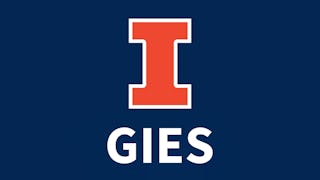Organizations large and small are inundated with data about consumer choices. But that wealth of information does not always translate into better decisions. Knowing how to interpret data is the challenge -- and marketers in particular are increasingly expected to use analytics to inform and justify their decisions.

Enjoy unlimited growth with a year of Coursera Plus for $199 (regularly $399). Save now.

(6,444 reviews)
Recommended experience
What you'll learn
How to build and define a brand architecture and how to measure the impact of marketing efforts on brand value over time
How to measure customer lifetime value and use that information to evaluate strategic marketing alternatives
How to design basic experiments so that you can assess your marketing efforts and invest your marketing dollars most effectively
How to set up regressions, interpret outputs, explore confounding effects and biases, and distinguish between economic and statistical significance
Skills you'll gain
- Customer Analysis
- Customer Insights
- Return On Investment
- Marketing Strategies
- Predictive Analytics
- Marketing Effectiveness
- Consumer Behaviour
- Regression Analysis
- Resource Allocation
- Marketing Budgets
- Brand Management
- Strategic Marketing
- Statistical Analysis
- Data-Driven Decision-Making
- A/B Testing
- Marketing Analytics
Details to know

Add to your LinkedIn profile
See how employees at top companies are mastering in-demand skills

There are 5 modules in this course
Welcome! We'll start with an overview of the marketing process and the transformational role of analytics. Then we'll walk through a case study. Ever heard of Airbnb? They're a powerhouse of the online community marketplace matching travelers to hosts. You'll see how they use analytics and the surprising results of their analyses.
What's included
10 videos2 readings3 assignments
Firms spend millions on branding for one reason: It allows them to charge more for their products and services. In this module, we'll explore this valuable, if intangible, asset. We'll discuss how to build and define a brand architecture and how to measure the impact of marketing efforts on brand value over time. By the end of this module, you'll be able to measure and track brand value. So let's get started!
What's included
12 videos3 assignments1 peer review2 discussion prompts
How valuable are your customers? That's a tough question that we'll show you how to answer in this module where we'll explore Customer Lifetime Value, or the future net value of a customer relationship. This forward-looking measure of the customer relationship helps you connect marketing strategies to future financial consequences and invest marketing dollars in the right place to maximize return over a customer's lifetime. By the end of this module, you will know how to measure customer lifetime value and evaluate strategic marketing alternatives based on whether they improve customer retention and lifetime value.
What's included
11 videos2 assignments2 discussion prompts
Ever wonder how much you have to cut prices to drive the most sales? Or which advertisement copy is more effective in customer conversion? Do an experiment! Experiments allow you to understand the effectiveness of different marketing strategies and forecast expected ROI. This week, we'll explore how to design basic experiments so that you can assess your marketing efforts and invest your marketing dollars most effectively. We'll help you avoid a gap between your test results and field implementation, and explore how web experiments can be implemented cheaply and quickly. By the end of this module, you'll be able to design and conduct effective experiments that test your marketing campaigns--and then use the results to make future marketing decisions.
What's included
13 videos3 readings4 assignments1 peer review
Ever wonder how variables influence consumer behavior in the real world--like how weather and a price promotion affect ice cream consumption? In this module, we will take a look at regression and how it's used to understand that relationship. We will discuss how to set up regressions and interpret outputs, explore confounding effects and biases, and distinguish between economic and statistical significance. We'll finish the week with a series of interviews with real marketing professionals who share their experiences and knowledge about how they use analytics on the job.
What's included
17 videos2 assignments1 discussion prompt
Instructor

Offered by
Explore more from Marketing
 Status: Free Trial
Status: Free TrialUniversity of Illinois Urbana-Champaign
 Status: Free Trial
Status: Free TrialUniversity of Colorado System
 Status: Free Trial
Status: Free Trial Status: Preview
Status: Preview
Why people choose Coursera for their career




Learner reviews
6,444 reviews
- 5 stars
75.17%
- 4 stars
19.23%
- 3 stars
2.87%
- 2 stars
0.88%
- 1 star
1.83%
Showing 3 of 6444
Reviewed on May 22, 2020
I learned a lot of theories and applications. Professor Rakjumar goes in-depth in explaining how everything is interrelated. The quizzes give the right balance between challenging and comfortable.
Reviewed on Mar 24, 2018
I have learnt a lot. Thanks a Lot to Mr.Rajkumar Venkatesan. Very clear explanation on each and every concept. I have learnt how to apply in real time with the real time data. Great Learning.
Reviewed on Aug 11, 2019
I have reached week 4 of this class, and so far, this class has helped me a lot. It's not an intensive class, but for a beginner like me, this provides me with an overall grasp of the field.

Open new doors with Coursera Plus
Unlimited access to 10,000+ world-class courses, hands-on projects, and job-ready certificate programs - all included in your subscription
Advance your career with an online degree
Earn a degree from world-class universities - 100% online
Join over 3,400 global companies that choose Coursera for Business
Upskill your employees to excel in the digital economy
Frequently asked questions
To access the course materials, assignments and to earn a Certificate, you will need to purchase the Certificate experience when you enroll in a course. You can try a Free Trial instead, or apply for Financial Aid. The course may offer 'Full Course, No Certificate' instead. This option lets you see all course materials, submit required assessments, and get a final grade. This also means that you will not be able to purchase a Certificate experience.
When you purchase a Certificate you get access to all course materials, including graded assignments. Upon completing the course, your electronic Certificate will be added to your Accomplishments page - from there, you can print your Certificate or add it to your LinkedIn profile.
Yes. In select learning programs, you can apply for financial aid or a scholarship if you can’t afford the enrollment fee. If fin aid or scholarship is available for your learning program selection, you’ll find a link to apply on the description page.
More questions
Financial aid available,
¹ Some assignments in this course are AI-graded. For these assignments, your data will be used in accordance with Coursera's Privacy Notice.

